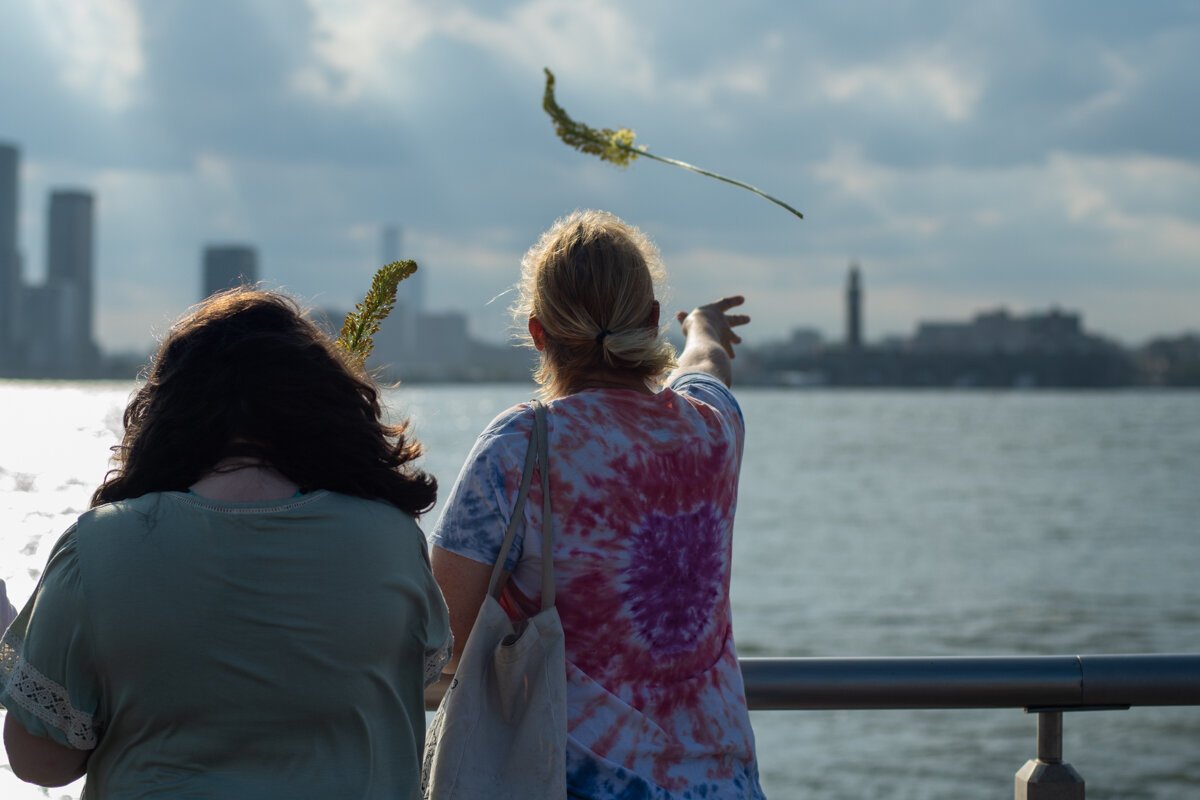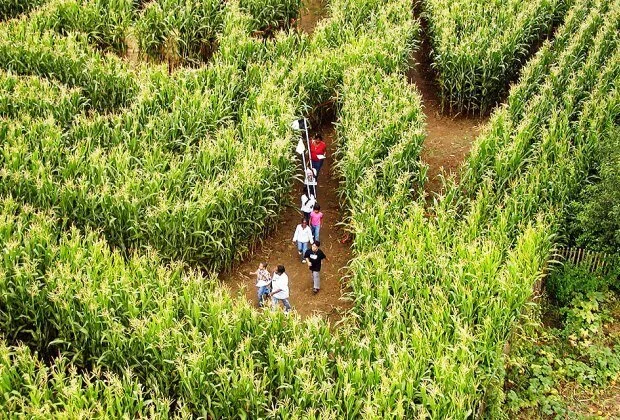
Sort by Category
MUSIC: Adon Olam
Watch and listen to this moving acapella rendition of Adon Olam performed by special guest Judi Williams.
Ancestral Super-Powers
by Rabbi Misha
My pre-election angst was ripped apart the other night when I learned about the killing of Walter Wallace Jr. by the Philadelphia police. This week’s Parasha helped me cope with the fact of the ongoing injustices, which will continue regardless of the outcome of the election.
Dear friends,
My pre-election angst was ripped apart the other night when I learned about the killing of Walter Wallace Jr. by the Philadelphia police. This week’s Parasha helped me cope with the fact of the ongoing injustices, which will continue regardless of the outcome of the election.
In it we are introduced to our first ancestor, Abraham, and to his one super-power, the ability to believe, the driving force behind his actions in the world. We read about his covenant with God; a covenant sealed in blood on Abraham’s part, and fire on God’s, known as the Covenant of Parts. I'll try and relay the story.
Abraham, here still called Abram, is now an old man, childless and living in a strange new land. When God appears to him with promises of great rewards, he is confused:
What can you possibly give me? I’m here walking alone and useless with no one to inherit what I have.
The one who will inherit you will come from your guts, God says. Flesh of your flesh.
Before Abram can say a word God takes him outside.
Look up at the sky, he is told, and count the stars. Can you do it? Your seed will be that numerous.
Imagine being told at age 90, after a lifetime of attempts at conceiving, that you will have a child. Imagine being told today that all 545 children who were separated at the border from their parents, and the government has no idea where these parents are, will all be reunited with their families. Imagine hearing a voice saying “One day the state of Mississippi, a state sweltering with the heat of injustice, will be transformed into an oasis of freedom and justice.” (That’s MLK’s voice in the March on Washington)
And now imagine believing that voice.
And Abram believed God.
I am the God who brought you here, God continues, so that your seed will be at home in this land.
It is at this point that Abram asks a simple question, which produces this covenant of fire and blood:
How can I know that is true?
Imagine that when you answered that way to the voice promising you miracles, it said this:
Bring Me a three-year-old heifer, a three-year-old female goat, a three-year-old ram, a turtledove, and a young pigeon.”
Or in our language this may be more like: Skip work for three days. Instead go to Philadelphia and protest the injustice. And then take another three days and fly to Guatemala and try and locate the parents of one of these children. And then take another three days and spend them at the soup kitchen around the block from your apartment.
How can you know that the promise will come true? God’s answer: Take action. Make a sacrifice.
Abram does it. He slaughters and skins the animals.
He brought them to God and cut them in two, down the middle, and placed each piece opposite the other;
For a while nothing happens. Abram falls asleep and has a terrible nightmare. He sees people suffering, destruction, a great darkness. The road to the fulfillment of the promise will be long, he is told. 400 years of slavery. But it will end.
When he wakes up it is nighttime, and it is smokey. A torch of fire is moving between the split pieces of the sacrifices. And Abram knows that the covenant is sealed.
May we have the strength to believe in the promise of a place that feels like home for all of us, and the motivation to work to make it so.
Shabbat shalom,
Rabbi Misha
MUSIC: Ya'ala
Watch and listen to Ya’ala, a piyyut describing the love between the dod (lover) and the ra’aya (wife).
This Piyyut, authored by Rabbi Israel Najara, the great 16th century poet, is a love song describing the love between the dod (lover) and the ra’aya (wife). The ra’aya is referred to here as Ya’ala.
This Piyyut has received a number of different musical settings and is widely sung in various Mizrahi communities. The most common melody is that of Ezra Aharon, written in the 20th century. It is commonly sung on the occasion of the birth of a daughter or at a Bat Mitzvah celebration. In the Moroccan community, this Piyut is also included in the traditional bakashot recited on Shabbat when the Bo Torah portion is read. It is also sung on many other occasions due to its moving lyrics and captivating melody.
Pre-Election Prophecies
by Rabbi Misha
“Afflicted city, lashed by storms and not comforted,
I will rebuild you with stones of turquoise,
your foundations with lapis lazuli.
I will make your battlements of rubies,
your gates of sparkling jewels,
and all your walls of precious stones.
All your children will be learned in the ways of The Presence
and great will be their peace.
In righteousness you will be established:
Tyranny will be far from you;
you will have nothing to fear.”
Dear friends,
“Afflicted city, lashed by storms and not comforted,
I will rebuild you with stones of turquoise,
your foundations with lapis lazuli.
I will make your battlements of rubies,
your gates of sparkling jewels,
and all your walls of precious stones.
All your children will be learned in the ways of The Presence
and great will be their peace.
In righteousness you will be established:
Tyranny will be far from you;
you will have nothing to fear.”
Some weeks the Haftarah reads like the very promise we need. Isaiah still speaks our language:
“For a brief moment I abandoned you,
but with deep compassion I will bring you back.
In a surge of anger
I hid my face from you for a moment,
but with everlasting kindness
I will have compassion on you,”
The Talmud asks how long this moment of abandonment of mercy lasts.
“God’s anger lasts a moment. And how long is a moment? One fifty-eight thousand, eight hundred and eighty-eighth of an hour, that is a moment.”
What feels like years to us is pretty short in the divine clock.
The prophetic promise continues:
“Do not be afraid; you will not be put to shame.
Do not fear disgrace; you will not be humiliated.”
The Kabbalist poet Shlomo Halevi Alkabetz, who wrote Lekha Dodi, which we will sing this evening, took Isaiah’s words and reconstructed them as a reason why we shouldn’t be afraid:
Don't be ashamed! Don't be abashed!
Why be depressed? Why be upset?
In you my poor people will be sheltered
And she shall be rebuilt - the city on her hill!
Though we feel small, weak, helpless in the face of the scary world around us, we actually have the capacity to be the shelter of the oppressed, and that in turn will revive the city as a whole.
Like most of his fellow prophets, Isaiah did not sit around waiting for redemption to happen on its own. What appears to us like a horror could in fact be a calling to the gate of a new time of reconciliation. When the BLM protests began in the spring I found myself at an interfaith vigil. An African American pastor spoke some simple words that have stayed in my heart:
How mighty is God!
It’s a sentence spoken not in New Shul language. We might say: The way this time unfolded - with the terrible death and sickness, the isolation and sadness, the sirens booming, and then suddenly the protests, the renewed call for justice, the ability of the country and ourselves to listen and to act - the way it all went down, as if by design is crazy. We don’t really know what is going on.
Maybe Isaiah does when he sings:
“Though the mountains be shaken
and the hills be removed,
yet my unfailing love for you will not be shaken
nor will my covenant of peace falter.”
I look forward to bringing in Shabbat with you all this evening at 6:30.
Shabbat Shalom,
Rabbi Misha
New York Magazine’s Photos of TNS
NEW YORK MAGAZINE LOOK BOOK ON THE NEW SHULS EREV ROSH HASHANAH SERVICE WITH AMAZING PORTRAITS OF THE COMMUNITY






